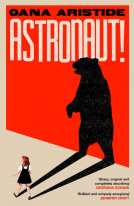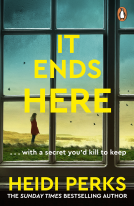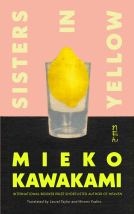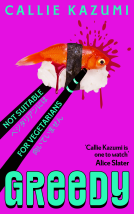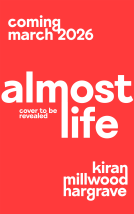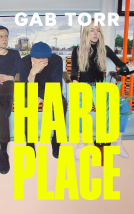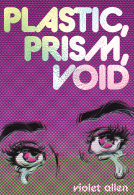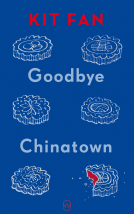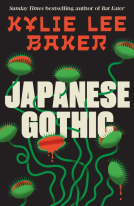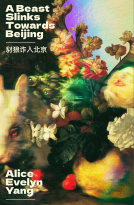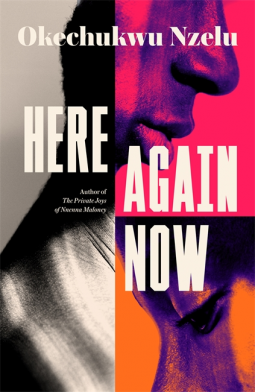
Here Again Now
'Written in exquisite prose and told with compassion and tenderness' Brit Bennett, author of The Vanishing Half
by Okechukwu Nzelu
This title was previously available on NetGalley and is now archived.
Send NetGalley books directly to your Kindle or Kindle app
1
To read on a Kindle or Kindle app, please add kindle@netgalley.com as an approved email address to receive files in your Amazon account. Click here for step-by-step instructions.
2
Also find your Kindle email address within your Amazon account, and enter it here.
Pub Date 10 Mar 2022 | Archive Date 13 Jul 2022
Little, Brown Book Group UK | Dialogue Books
Talking about this book? Use #HereAgainNow #NetGalley. More hashtag tips!
Description
'A beautiful exploration of grief and family, written in exquisite prose and told with compassion and tenderness.' Brit Bennett, author of The Vanishing Half
'Tender and honest, pulsing with love. Nzelu is the future of Black British writing.' Derek Owusu, author of That Reminds Me
From award-winning author Okechukwu Nzelu comes a spellbinding literary novel that asks, how do you move forward when the past keeps pulling you back?
Achike Okoro feels like his life is coming together at last. His top-floor flat in Peckham is as close to home as he can imagine and after years of hard work, he's about to get his break as an actor. He's even persuaded his father, Chibuike, to move in with him, grateful to offer the man who raised him as a single parent a home of his own.
Between filming trips, Achike is snatching a few days in London with Ekene, his best friend of twenty years, the person who makes him feel whole. Achike can put the terrible things that happened behind him at last; everything is going to be alright. Maybe even better.
But after a magical night, when Achike and Ekene come within a hair's breadth of admitting their feelings for each other, a devastating event rips all three men apart. In the aftermath, it is Ekene and Chibuike who must try to rebuild. And although they have never truly understood each other, grief may bring them both the peace and happiness they've been searching for...
A heartbreaking and immensely uplifting novel about lovers, fathers and sons. If you love The Vanishing Half, Shuggie Bain or Moonlight then you'll adore this this incredibly moving book that shows the power of family - both the one into which we are born and those we choose for ourselves.
What readers are saying about Here Again Now:
'A deeply intimate novel. Nzelu's incisive style probes beneath his characters' layers to expose vulnerability, joy, and love... Here Again Now is a revelation.' Courttia Newland
'I loved these heartbreaking characters, their flaws were never glossed over in Nzelu's work, and their humanity shines out all the brighter for that. I cannot recommend this novel enough.' Paterson Joseph
'Okechukwu Nzelu is truly coming into his power as a novelist. It's a beautiful and memorable book. Watch him soar.' Niven Govinden
'WOW, Nzelu is a BEAUTIFUL writer. A truly stunning love story. Heavy themes captured with grace and lightness. Tender, erotic, a total pleasure to read. Pre-order and be smug when it wins all the awards.' Daisy Buchanan
'His most assured, daring work. Telling a riveting and heartbreaking tale... A gloriously moving book which willsurely collect every award going.' Harper's Bazaar
'A novel of great tenderness and understanding. Nzelu's words feel both wise and fresh on the page.' Elizabeth Day
'An elegiac take on the unpredictabilities of the heart and a love that survives loss.' Paul Mendez
'A book so beautiful, it makes your heart ache on every page. Utterly brilliant, I loved it.' Julie Owen Moylan
'One to watch next year.' Stylist
'A powerful and heartbreaking novel; Okechukwu Nzelu is a vital voice.' Andrew McMillan
'Nzelu confirms his place as one of the most exciting and versatile writers of his generation.' Angela Chadwick
'A transgenerational story of grief as tender, potent and nimble as love.' Kit Fan
Available Editions
| EDITION | Other Format |
| ISBN | 9780349701066 |
| PRICE | £14.99 (GBP) |
| PAGES | 304 |
Average rating from 18 members
Featured Reviews
Here Again Now is a novel about love, bonds, and grief, as three men try and work out what family is for them. Achike is an actor finally breaking into the industry, just having bought a flat in Peckham, where his best friend Ekene, who he's known since they were both teenagers, has been living temporarily. Their bond is deep, but fragile and potentially changing. When Achike's father Chibuike also moves into the flat, the three men suddenly have to work out their dynamics with each other, until tragedy strikes and their bonds change yet again.
This is a bittersweet, often sad novel, that focuses a lot on grief and missed chances to show love, but it also looks a lot at different kinds of bonds between men and ways that fathers and sons express connections. The opening of the book explores Achike and Ekene's relationship, and I found it compelling and believable, especially all the little moments between them and yet the boundaries they kept up. The narrative quickly becomes heartbreaking, and then moves between the present and past, with not much happening except an exploration of two characters finding new ways to relate to each other. The prose style worked well for the content, feeling lyrical and sad, but despite the tragedy, the book also focuses on how people navigate moving on whilst grieving and coming to terms with their relationship with someone who is gone.
Tender and bittersweet, this is a book that explores bonds between men in different forms and how relationships change and develop. It is more of a character study of three men than something with a lot of plot and it doesn't bring much resolution, which won't be for everyone, but it offers a lot between its pages.
 Giselle Q, Reviewer
Giselle Q, Reviewer
What an absolute gem of a novel, it’s heart-breaking, poignant, and beautiful.
The narrative explores the bonds between father, sons, friends and lovers and explores masculinity, queerness and blackness. All the while melting in grief, guilt and forgiveness.
It’s very character-driven (almost a character study), and at its heart is a novel about three men trying to work out what family means for them. Achike is an actor finally breaking into the industry, just having bought a flat in Peckham, where his best friend Ekene, who he's known since they were both teenagers, has been living temporarily. Achike’s father moved into the flat and the men are suddenly forced to navigate the dynamic of living together, a dynamic that they previously shared when the two younger men lived in Chibuike (Achike’s father’s) home.
Nzelu’s voice is so reminiscent of Ocean Vague, his prose is like poetry. The story is bittersweet, the exploration of friendship and connection is so believable.
4.5* from me and I’d recommend anyone read this NOW.
 Sasha C, Reviewer
Sasha C, Reviewer
This book was really a study in toxic masculinity, love, and grief.
What starts as a burgeoning love story between two characters that has been years in the making is instantly halted by a tragic incident. The shift from unsure, and possibly unbalanced love, to grief and how toxic masculinity affects expressions of grief was definitely unexpected, but necessary. I found myself having to sometimes pause and even walk away from the book to really process what I was reading. It was difficult at times, even close to home at some points, but incredibly beautiful and at times poetic.
The author really delves into each character’s psyche in great depth, making each individual character a fully realised human which helped really empathise with each of them and also envision them in my mind.
A true masterpiece. I look forward to reading the author’s next book!
 Reviewer 553494
Reviewer 553494
There is a certain type of joy I experience when an author's sophomore better than their debut. Not like the debut wasn't good, it's just so satisfying to know you were not rooting for a one hit wonder.
Okay, that's enough of that. If you're reading this review, I want to assume you've read the synopsis. And this is me convincing you that it's absolutely worth every second of your time
PUBLISHER’S DESCRIPTION:
Achike Okoro feels like his life is coming together at last. His top-floor flat in Peckham is as close to home as he can imagine and after years of hard work, he’s about to get his break as an actor. He’s even persuaded his father, Chibuike, to move in with him, grateful to offer the man who raised him as a single parent a home of his own.
Between filming trips, Achike is snatching a few days in London with Ekene, his best friend of twenty years, the person who makes him feel whole. Achike can put the terrible things that happened behind him at last; everything is going to be alright. Maybe even better.
But after a magical night, when Achike and Ekene come within a hair’s breadth of admitting their feelings for each other, a devastating event rips all three men apart. In the aftermath, it is Ekene and Chibuike who must try to rebuild. And although they have never truly understood each other, grief may bring them both the peace and happiness they’ve been searching for…
NO SPOILERS
It’s very hard to write a review for this book. I really am not good enough but here’s my best effort and frankly, the publisher’s description of this book is ridiculously inadequate; it deserves so much better.
Here Again Now is beautifully, gently, sympathetically, empathetically (I could go on) written by Okechukwo Nzelu. Never before have I underlined and copied so many quotes. He absolutely gets it. It’s spot on. Love never spoken. Love lost. Love mourned. Love given. Love accepted. Love just on the brink. It’s moving, astounding and affirming.
Nzelu writes with pathos; it’s a very calm read. I’m a fast reader but I read this slowly, very slowly, to savour every poetic, rhythmic phrase.
Read this book. Read this book carefully. The music is there. You will hear it.
“Hope still lingered…as if it didn’t know where else to go”
Thank you to NetGalley and Dialogue Books for the Advanced Review Copy of the book, which I have voluntarily reviewed. Most of all, thank you to Okechukwo Nzelu for writing Hear Again Now.
 Graham F, Reviewer
Graham F, Reviewer
I was familiar with (but had not read) the author’s first novel “The Private Joys of Nnenna Maloney” but whereas that was a humorous coming of age story, this is a much more serious and almost self-consciously literary novel, albeit the author has identified that both books aim to “to shine a light on the pain of individuals within groups, to force us to look at vulnerable people, to demonstrate the interconnectedness of people, to show how much we need each other.. When I started reading the book – one of the first notes I made to myself for my review was “Jane Austen” so I was intrigued to see that the author has stated Austen as his favourite author.
I would then perhaps describe this as: an Austen inspired, self-consciously literary and studious interior examination of race and diaspora, but more so of masculine relationships and identity, and above all of love, all with a particular focus on queer, black British-Nigerian men and on father-son (and step-father) son relationships.
The book has effectively only three characters – with the handful of side characters being completely overshadowed by a very deliberately intrusive omniscient narration. It takes place over a few days although with characters roaming back over many more years in their reflections during those days.
Achike and Okoro were close friends from their late secondary school years (now some twenty plus years previously) in Manchester – Okoro, something of a school drop-out even being taken in by Achike’s father Chibuike when Okoro’s mother makes him unwelcome; both then moving to London to try to further their acting careers. Both at different times have had loved the other and wanted the love to be returned (and even their relationship to be formalised) and at others understood the other’s wishes but been unable to return the love, but except for one, oft referred to night in Berlin when they were almost able to reach a mutual expression of love, have always stayed at a distance (a key theme in the novel).
Whereas Okoro has curbed his dreams for a role as a high-school drama teacher; Achike (who’s one vulnerability is a lifelong series of migraines which punctuate the text) has gone from strength to strength both in his career and his charisma (for example movie star looks and musical talent), particularly after being approached by a famous agent Julian, and now is on the verge of his big break with a lead role in the eponymous “Here Again Now” a film set in New York and Nigeria where the female lead is reincarnated over multiple lives in Nigeria where she shapes that country’s destiny while also fighting police brutality in America.
Okoro has recently been made redundant from his drama job and has moved in with Achike – and at the time of the book’s setting Achike has (on a trip back from filming) moved Chibuike (now a long term alcoholic) into the flat also.
All three characters are forced to try to explore their feelings about each other and particularly the mental barriers that seem to have prevented them really expressing or acting out those feelings – and to reflect individually and together on the individual and shared pasts that have led to the erection of those barriers. This exploration and reflection becomes particularly focused for Okoro and Chibuike for who a devastating event causes them to need to explore both how they have been over many years with Achike (and how much or little they really understand of Achike’s own feelings and life) as well as trying to explore their own relationship which does not even have an accepted label such as friends, lovers or father-son.
The most distinctive element of the book is the writing style – which is extremely internally reflective with characters either in their thoughts (or as voiced by the narrator) examining their own thoughts and behaviour. I think how one reacts to these (thoughtful or ponderous, heartfelt or pretentious) will largely determine one’s reaction to the book.
One example: "Ekene .. knows Chibuike now. Chibuike acts gruffly, but this is the way with men. Ekene is still young – only seventeen – but he is learning. This is the way with fathers: they have tough exteriors, only because the insides of them are unbearably tender, like flesh under fingernails. Men are like this. But Ekene has never seen his father this tender. The tender parts of his father are scant, and they are bounded off and kept for women, other women, always new women. His father guards his heart’s good things watchfully with bright eyes, flaming swords. Obiajulu was never meant for children."
As befits a book which both examines how masculine relations are shaped over generations and has a film about reincarnation playing a crucial part – there are many very deliberately recurring phrases.
Some of these are concepts: for example the idea of a positive uniqueness of individuals (“there is nobody in the world like this man”) and a negative uniqueness of challenges faced as seen by the protagonists caught up in the individuality of what they are trying to work out (nobody we are often told has ever done this); others are rhetorical questions – in particular “Could there be more than distance and sex between men” and the general idea of physical and emotional distance between men is hugely important; others are more complex – for example imagery around "wild insurbodinate things" and below-surface monsters which threaten to reshape someone's life.
Some of the language is I think particularly strong, In a book which examines religion in a mature way with characters from a Christian tradition which they struggle to relate to their own experience and beliefs but which stays as a cultural underpinning) I loved this description of the type of Carol that Achike favoured “Chibuike and Ndidi had spent long Christmas Eves listening to him sing carols whose tunes seemed rather to dread the approach of Christ than to celebrate it. Music that crawled through broken glass towards salvation.”
Overall I thought this was a memorable and deeply affecting and moving book which shows great literary promise.
This novel charts the unspoken and often covert relationships between various queer characters, with London serving as a backdrop to brewing tensions.
The stress of this is almost made physical by the presence of one of our central characters, whose regular migraines seem to be a physical reaction to the strain of keeping secrets.
As the story unravels, we find out more about the various intricacies of these relationships, coming towards what I thought was a tender and beautiful end.
I received an advanced copy of this book from NetGalley in exchange for an honest review.
 Ruth F, Reviewer
Ruth F, Reviewer
4.5*
This was a compelling, and often heartbreaking, read. Throughout there was this focus on masculinity and make relationships, of the balances between romantic and friendly love, of the power shifts between fathers and sons, of grief, of loss, and most of all, of love in its many myriad forms.
Women were almost conspicuous by their near absence; this was very much a meditation on three men who are trying to find themselves, and how this was often through their complicated senses of how to be male.
I found the writing to be particularly poignant and effective, in granting the atmosphere and environment that the characters existed in, and perhaps especially in how the main three characters experienced their world differently. There were so many lines that I found myself highlighting and rereading, often for the way that captured a very particular moment or sensation.
Essentially, despite the raw pain that the book often produced in me, it also gave me a strong sense of hopefulness at the end. I think mostly because while not all love can fulfill all we want it to be, at the end there is this appreciation of the importance that that love existed.

